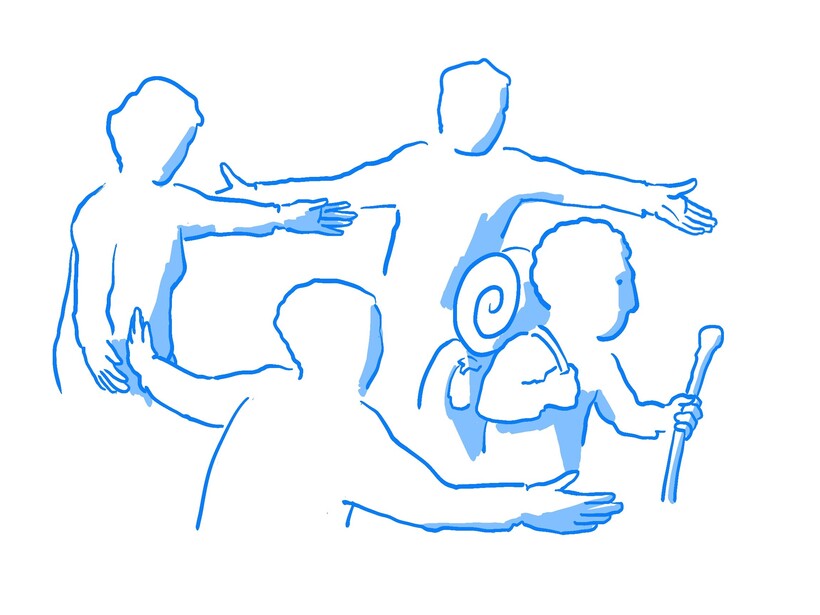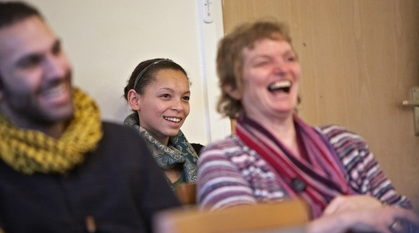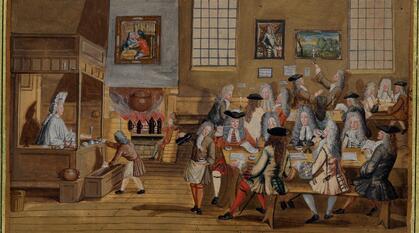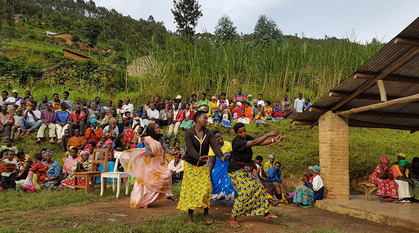Moving with dignity: rethinking migration in the UK and beyond
Feblezi Huebi explains why it's time for a new conversation about migration – and how peace can guide the way.

Let's be honest – migration isn't a calm or balanced topic in the UK right now. Whether it's flights to Rwanda, small boats in the Channel, or the ongoing debate about 'illegal' vs 'legal' migration, the tone of public and political conversation is often tense, reactive, and full of fear.
But what if we stepped back and approached migration not as a 'crisis' to be managed but as a human experience to be understood with empathy and peacebuilding in mind? That's the idea behind a new handbook just launched by the Quaker Council for European Affairs (QCEA): Moving with Dignity: A positive peace approach to migration.
So what's this handbook all about?
Moving with Dignity is about reimagining migration policy through the lens of positive peace. This concept goes beyond the absence of violence and looks at the conditions that allow people and societies to thrive. That means tackling not just war and direct violence but also the structural and cultural systems that cause harm, like racism, poverty, exclusion, and injustice.
Instead of seeing migration as a security threat or a policy problem, the handbook invites us to see it as a human reality shaped by systems – and one that can be governed differently.
The handbook is rooted in peacebuilding theory but is also deeply practical. It looks at how migration policy could change in:
- Countries of origin – by addressing the reasons people are forced to flee, like inequality, corruption, or climate injustice
- Countries of transit – by protecting people on the move, not punishing them
- Countries of destination (like the UK) – by building more welcoming, inclusive systems that respect dignity and human rights
- And even in post-conflict return – helping people go home safely and rebuild
Why does this matter in the UK?
It's tempting to think of this as an EU conversation. But the truth is, the UK is still very much a part of the bigger migration picture and a key player in how policies are shaped across the continent.
At the same time, the UK's migration system is at a turning point. The Illegal Migration Act, the controversial Rwanda plan, and increasingly hostile language around asylum and refugees all signal a need to take stock and ask: Are we heading in a direction that reflects our values or are we doubling down on fear-based, punitive responses?
The handbook couldn't come at a better moment. It offers a chance to shift the narrative from walls and borders to dignity and peace.
There are better ways – and we can learn from them
One of the handbook's most powerful aspects is that it's not just theory. It's packed with real examples of good practice – from labour mobility schemes that connect displaced people with jobs to community-led peacebuilding efforts in countries of origin to programmes that welcome and integrate refugees with care and respect.
And yes, the UK can learn from them too.
There are already people doing great work across the UK – faith groups, community organisations, cities of sanctuary – all showing that a more humane, welcoming approach is possible. The question is whether the national policies will follow their lead.
This isn't just about migrants, it's about who we want to be
Quakers have long stood for peace, equality, and justice. In a time when migration is being used as a wedge issue to divide and scare, we're called to speak up for something different.
Moving with Dignity reminds us that peace isn't passive. It's about actively building systems in which no one is forced to flee their homes and where those who do move are treated with care, not criminalisation.
Where to next?
At QCEA, we're hoping the handbook becomes a tool not just for policymakers but also for communities, advocates, and Quakers who want to establish something better. Now's the time to use it. With elections on the horizon, growing public concern and global displacement rising, we need new approaches, and fast.
If you're in Brussels on 13 May, join us for the official policy and launch event. A London launch is also being planned for 18 June and you can watch a recording of the online launch.
Migration doesn't have to be a fight. It can be a story of peace – if we choose it.
The Quaker Council for European Affairs and Quaker Peace & Social Witness are inviting Friends from across Europe to come together to learn about and explore contemporary Quaker work. Book now for this joint conference: Faith in action in an age of permacrisis, 20-22 June 2025.


